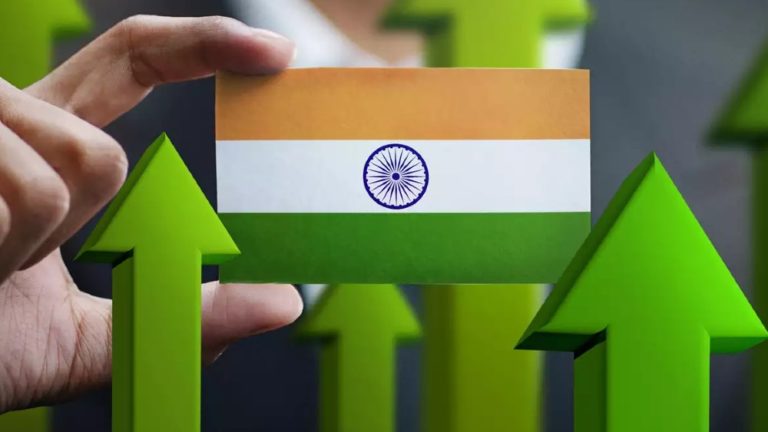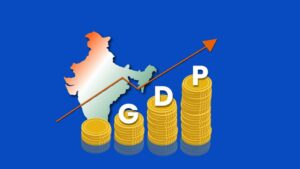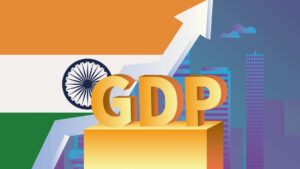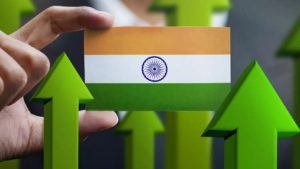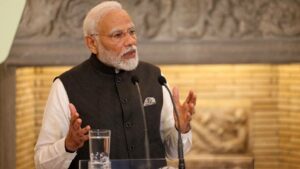The world economy was in the recovery zone when out of blue came the Russia-Ukraine war. A war which was supposed to be over within a week has entered in second month. The main worry is that trends towards globalisation are being challenged. The concept of a free world economy and world as a global village is in danger. The war is now impacting the stability of the global order as many countries are facing food and energy shortage. The conflict, if continues for a longer period, will further hit supplies of major raw materials, including crude oil, natural gas, food, fertilizers, and metals. Rising international commodity prices is the biggest risk emanating from the ongoing conflict as Russia and Ukraine are global suppliers of key commodities. There are disruptions and the geopolitical tensions have sent oil prices spiraling raising concerns of a hit to India’s economic recovery also. India may not have a significant merchandise trade with Russia, nevertheless, it stands to lose economically due to supply disruptions caused by USA and Western sanctions.
With India being a net importer to meet its energy requirements, the sharp rise in crude prices represents a significant shock to India’s macro-economic framework. Certainly the situation today is uncertain. And uncertain for India also. While the threat from the COVID-19 pandemic is still looming, the continuation this conflict is posing a significant challenge. However major pivotal indicators are suggesting otherwise.
First of all the RBI is expected to continue supporting the ongoing economic recovery by keeping the repo rate unchanged in its April policy review. RBI Governor Shaktikanta Das agrees when he says that “India’s economy is far better placed today, and there will be a marginal impact from the Ukraine war. India is far away from such stagflation risk. We expect inflation in India to moderate. I don’t see a situation where inflation keeps on skipping the band we have set.”
On the growth prospect, according to the FICCI Economic Outlook Survey the country’s gross domestic product is expected to grow 7.4 per cent in the current financial year 2022-23. The survey estimates a minimum and maximum growth of 6.0 per cent and 7.8 per cent, respectively, with rising prices triggered by the Russia-Ukraine conflict posing as the biggest challenge to the global economic recovery. It also forecasts the median growth for agriculture and allied activities about at 3.3 per cent for 2022-23. Industry and services sectors are estimated to grow by 5.9 per cent and 8.5 per cent, respectively. The FICCI’s Economic Survey projected CPI-based inflation at 6.0 per cent in Q4 2021-22 and 5.5 per cent in Q1 2022-23. It also said that the median forecast of 5.3 percent for 2022-23 for CPI-based inflation may fluctuate between a range of 5.0 percent and 5.7 percent, respectively.
Asian Development Bank has also projected a seven per cent collective growth for South Asian economies in 2022 with India growing by 7.5 per cent in the current fiscal year before picking up to eight per cent the next year. Its Asian Development Outlook (ADO) 2022 Report says the growth in South Asia is projected to slow to seven per cent in 2022, before picking up to 7.4 per cent in 2023. It says India is expected to grow by 7.5 per cent this fiscal year (FY23) and eight per cent next fiscal year (FY24). ADB said developing Asia’s economies are predicted to grow by 5.2 per cent this year and 5.3 per cent in 2023, thanks to a robust recovery in domestic demand and continued expansion in exports. However, Morgan Stanley has lowered India’s GDP forecast for the fiscal year 2023 by 50 basis points to 7.9%, citing risks to macro stability due to high crude oil prices.
India has taken a neutral stance due to its long historic strategic partnership with Russia. This alliance goes back to many decades. In fact Russia a pivotal part of India’s nation-building process particularly defence. Russia is one of the largest exporters of crude oil globally but India’s trade, however, comprises only 1% oil imports from Russia.
The only comfortable prospect that can emerge from the conflict is that surge in crude oil prices would drive the world towards green energy. Oil crisis will push is more speedily towards renewable energy. We may see a faster transition to green and renewable energy due to shortages in crude. And secondly, the Dollar dependency will gradually reduce.



